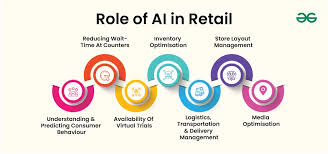Artificial intelligence has fundamentally reshaped the retail landscape. From chatbots to predictive analytics, AI in retail is transforming how businesses understand and interact with customers. One of the most powerful—and controversial—applications is personalized recommendation engines. These systems promise to tailor products, prices, and promotions to individual shoppers. But as personalization deepens, so do the ethical questions. Can retailers balance business goals with consumer fairness? Is ethical personalization even possible?
The Promise of Personalization
AI-powered recommendation engines have become a cornerstone of modern retail strategy. By analyzing customer behavior, purchase history, and demographic data, these systems can serve up relevant products in real-time. Done right, personalization boosts engagement, increases conversion rates, and enhances the customer experience.
For retailers, this means higher revenue and deeper brand loyalty. For consumers, it means less time spent searching and more relevant choices. But this win-win scenario assumes that personalization is applied ethically—a significant assumption.
The Hidden Costs of Bias
While personalization offers convenience, it can also reinforce bias, exclude certain groups, or exploit behavioral vulnerabilities. Many AI algorithms rely on historical data, which may reflect past inequalities or skewed marketing efforts. For instance, if a system historically offers higher credit limits to certain demographics, that bias may persist in future recommendations.
This is where the concept of fair consumer AI comes into play. Fair AI ensures that personalization does not discriminate based on race, gender, socioeconomic status, or other protected attributes. It prioritizes transparency, inclusivity, and user control—values not traditionally associated with high-performance marketing tools.
Ethical Recommendation Engines: A Work in Progress
The development of ethical recommendation engines is still in its early stages. Researchers and developers are experimenting with methods to audit algorithms for bias, introduce explainability, and give users more control over the data collected and how it is used.
One approach is to limit the types of data used in personalization. For example, some platforms are choosing to avoid sensitive attributes altogether, focusing only on behavior-based data. Others are building opt-in models, where consumers can customize the degree and type of personalization they receive.
Additionally, there’s a growing push for transparency. Ethical recommendation engines should be able to explain why a particular product was recommended. Was it based on previous purchases? On what others with similar interests bought? Clarity here builds trust.
Striking the Right Balance
To achieve ethical personalization, retailers must embrace more than just compliance. They need to view ethics as a strategic advantage. Trust and transparency can lead to long-term brand loyalty—arguably a more valuable metric than short-term sales boosts.
This means adopting fair consumer AI standards across the lifecycle of recommendation engines: from data collection and model training to deployment and ongoing monitoring. It also means including diverse stakeholders—marketers, data scientists, ethicists, and consumers—in AI development discussions.
Conclusion
As AI in retail continues to evolve, the industry stands at a crossroads. Personalized experiences are no longer a novelty—they’re a necessity. But with great personalization comes great responsibility. The goal isn’t to stop using AI but to use it wisely, transparently, and fairly.
The journey toward ethical recommendation engines and fair consumer AI is complex, but essential. Retailers that embrace this challenge won’t just comply with regulations—they’ll build deeper, more meaningful relationships with their customers. And in the crowded, competitive world of retail, that could be the ultimate differentiator.







